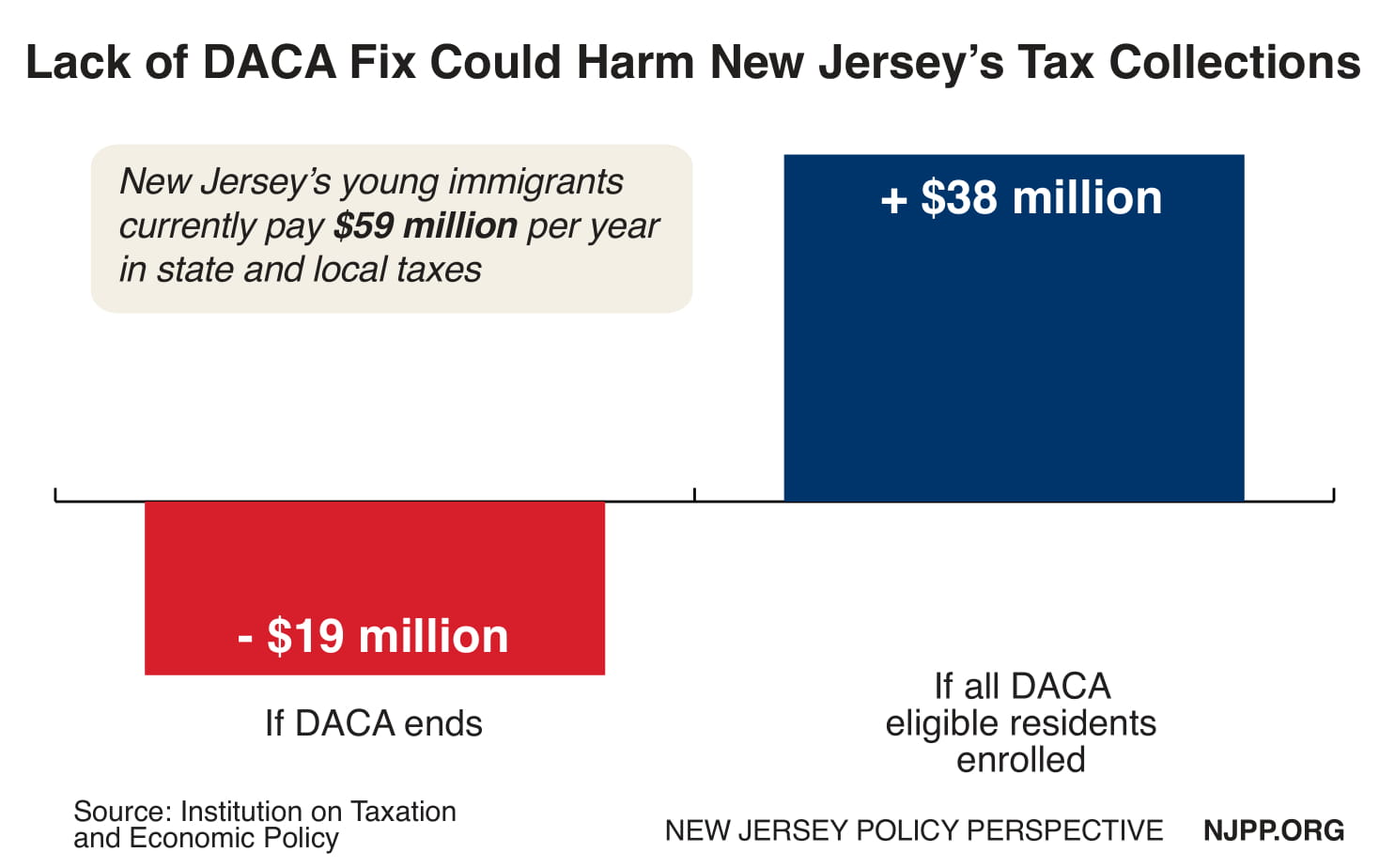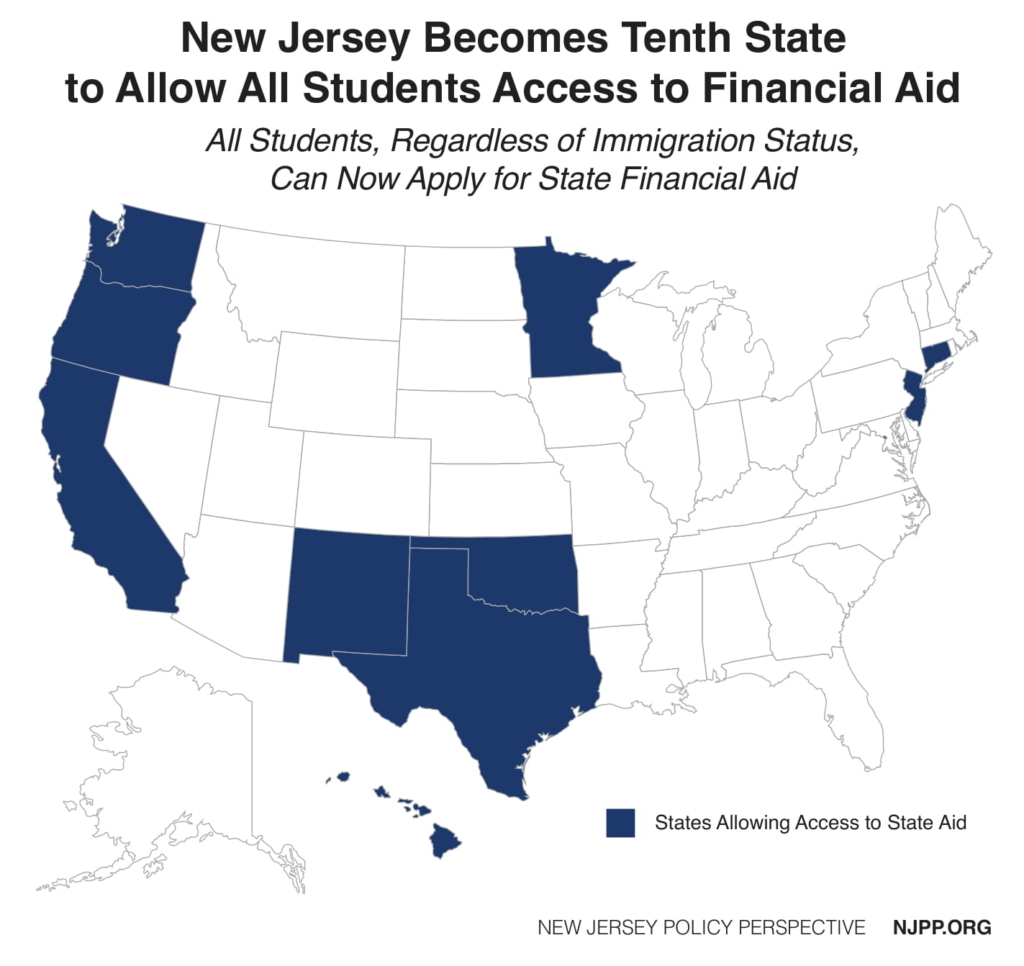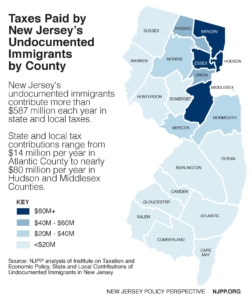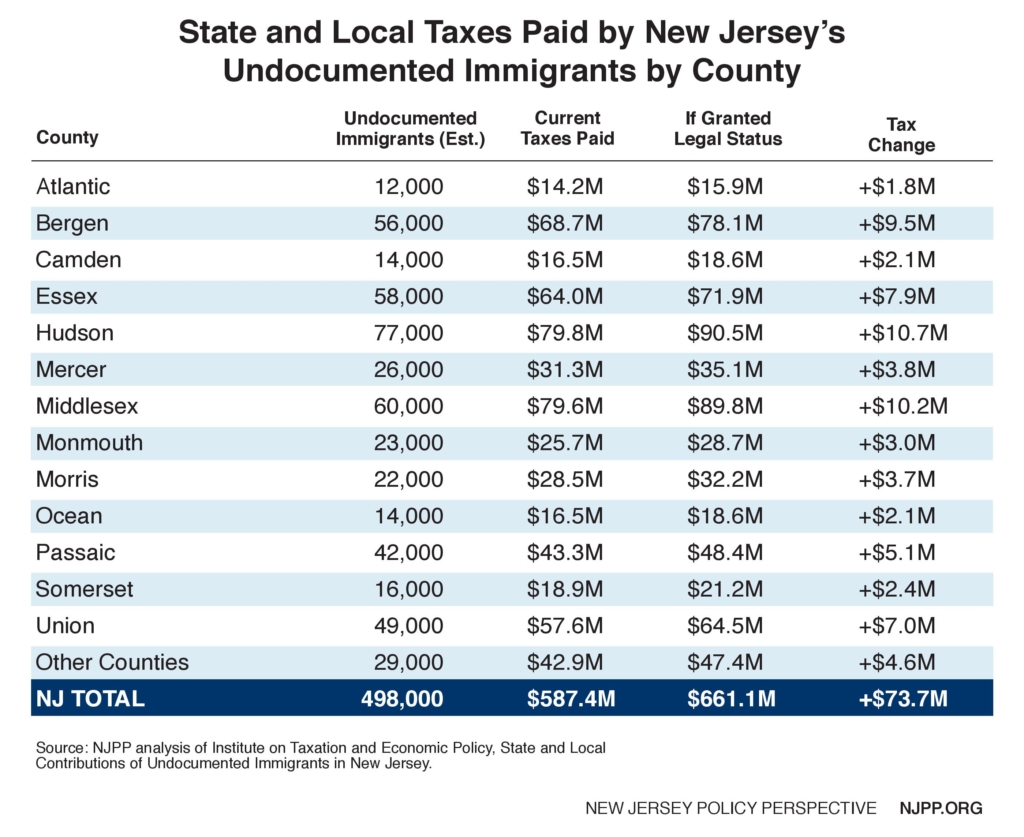When undocumented youth are given a chance, they capitalize on the opportunity. This is exemplified by the state and local taxes paid by the 17,620 DACA (Deferred Action for Children) recipients living in New Jersey. According to an updated 50-state study by the Institute on Taxation and Economic Policy, providing undocumented immigrants a legal path to citizenship would significantly increase taxes paid by immigrants, strengthening New Jersey’s economy while providing stability to local communities.
The ITEP study found that New Jersey’s young immigrants eligible for DACA contribute $59 million in state and local taxes each year, the seventh highest level of all fifty states. These contributions would increase by $38 million per year – the sixth most of all states – if all of those eligible for DACA enrolled in the program. However, if DACA protections end, these state and local tax contributions will drop by $19 million per year, a 33% reduction. When laws push immigrants further to the margins of society, their economic contributions decline at a rapid rate.
Data released last September from the federal government revealed that there are 20% fewer DACA recipients living in New Jersey than had previously been reported. The drop from 22,000 to 17,620 can be attributed to some DACA recipients having their status adjusted, a percentage not qualifying for renewal, and some undocumented youth choosing not to renew as the future of DACA remains uncertain.
In September 2017, the Trump administration announced it was ending DACA. Since then, federal courts temporarily preserved the program and ordered the administration to continue accepting DACA renewals. The fate of DACA is now in the federal courts, as Congress has yet to come up with a proposal to save the program.
It is unclear if the Trump administration’s aggressive demeanor towards immigrants impacted DACA recipients from renewing their permits. What it is clear is that intimidating immigrants and creating a hostile environment for them will only further chase undocumented immigrants into the shadows of society, resulting in lost economic and societal contributions in their communities. It is now up to individual states like New Jersey to protect immigrant communities and encourage their participation in the economy.
This report serves as a reminder that contrary to popular misconception, undocumented immigrants are paying into the tax system now. And, of course, undocumented immigrants would contribute more to state and local coffers more if there was a path to citizenship.



 New Jersey’s undocumented immigrants
New Jersey’s undocumented immigrants 
